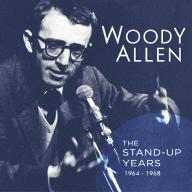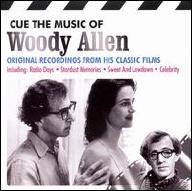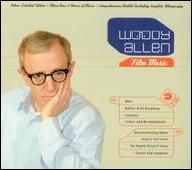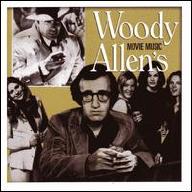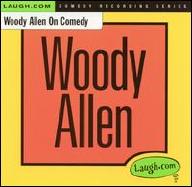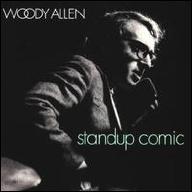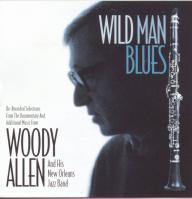Woody Allen was born Allen Stewart Konigsberg in Brooklyn, New York on December 1, 1935. After adopting his stage name at the age of 17, in 1953 he enrolled in New York University's film program, quickly failing the course "Motion Picture Production" and dropping out of school to begin writing for comedian David Alber for the sum of $20 a week. Two years later, Allen graduated to writing for television, working on the staff of the legendary Your Show of Shows as well as penning material for Pat Boone.
During his five-year tenure in television, his efforts won him an Emmy nomination, but like Mel Brooks, Allen found a career as a writer stifling, and eventually decided to try his hand as a performer. He made his professional debut in 1960 at the Blue Angel club in Manhattan; success came slowly, and the first major published review of his act did not appear until two years later. However, his comic worldview was different and fresh, and his talents soon caught the eye of television booking agents; beginning in 1963, Allen became a frequent talk show guest, and by the following year, he recorded his self-titled debut LP, a litany of regrets about his marriage, his collegiate years, and his stint playing Little League.
Woody Allen, Vol. 2, a collection of ambitious comic tales, followed in 1965, although by this point Allen was already losing interest in the standup form; that same year, he made his film debut in the comedy What's New, Pussycat?, which he also wrote. For all intents and purposes, his career as a stage comedian -- a period he later admitted was wracked with fear and self-doubt -- ended with the release of 1968's Woody Allen Three; a year later, the success of the feature Take the Money and Run (which he wrote, directed, and starred in) guaranteed him a future as a filmmaker. By 1977's Academy Award-winning Annie Hall, Allen stood as one of the truly monumental talents of his time, a position solidified by later masterpieces including 1979's Manhattan, 1986's Hannah and Her Sisters, and 1989's Crimes and Misdemeanors. His longtime interest in playing jazz was the subject of the 1998 documentary Wild Man Blues, as well as its accompanying soundtrack. Allen's three comedy albums have been periodically reissued over the years, first in 1972 by United Artists in a two-LP package called The Night Club Years 1964-1968, and later in a set titled Standup Comic (which at various times was issued by United Artists, Casablanca, and Rhino Records). In 2014, Razor Tie-issued The Stand-Up Years, which collected Allen's three albums in full along with unreleased bonus material. ~ Jason Ankeny, Rovi


